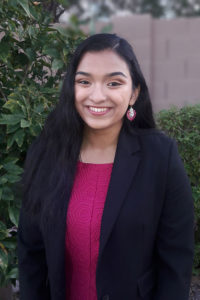
Freya Abraham has wanted to be a doctor since she was 4 years old.
While the specialty has changed, the goal still exists and is even nearer her grasp. At 17, she is now a semi-finalist for both the prestigious Flinn Scholarship and the Coca-Cola Scholarship.
It is the second year in a row a Maricopa High School student has been named a semi-finalist for the Flinn. Last year, Chandler Chang received the scholarship, which is valued at $120,000.
“The cool thing about the Flinn is they know people who do what you want to do,” Abraham said. “I was looking into Flinn scholars, and there are several that are already interested in public policy and science degrees. You don’t have to stumble into this field and try to find your own connections. You can be part of a community, maybe work on something they’re working on and then start your own project. It’s just easier if you have that level of support and resources.”
The status as semi-finalist puts Abraham in the top 80 of the 800 Arizona students who applied for the scholarship. In the campaign for a Coca-Cola Scholarship, she is in the top 1,928 out of 93,000 who applied nationally.
The Coke Scholarship of $20,000 ($5,000 per year in college) goes to 150 students. This year, 50 semi-finalists are from Arizona.
The Coke semi-finalists must complete a second application that is even more in-depth than the first, and it is due in January. The first application looks at their academic record and inquires about activities the students are involved in but has no essay requirement. Round 2 is different.
“Now specifically, they listed the activities I submitted,” Abraham said. “They’re like, ‘Write an impact statement for each one.’ For the essay questions now, they have like six different ones.”
She is also a National Merit Scholarship semi-finalist. In Maricopa High School’s DECA chapter, she started winning awards during freshman year and by junior year was chapter president, when she won an overall first-place award in the state competition. She founded the school’s STEM Club (“I love STEM Club”), was a state-level winner in Junior State of America, founded the Girls Who Code Club at Maricopa Public Library, participated in TGen BioScience Leadership Academy, Girls State and Future Health Leaders of Arizona and is involved with several programs with her church.
By her mother Neetha’s account, Freya has always been self-motivated and curious. Reading voraciously by the time she was 4, Freya has become a high-energy teen.
“The only thing we need to tell her: ‘Freya, go and sleep,’” Neetha Abraham said. “We want to see her sleeping. The last six months, we want her to get to sleep at least six hours per day. If it’s a finals test sometimes she stays up to 2 a.m., 3 a.m., some days 4 a.m. waking up at 6 a.m.”
Neetha started staying up with her, “guilting” her into going to bed.
Each year, the Flinn Scholarship awards 20-24 graduating seniors who will attend an Arizona college.
Freya and her parents, Francy and Neetha, looked at Arizona State and University of Arizona and were impressed. Freya leaned toward the neuroscience program at U of A, which also has programs for management and public policy. It is also where Francy earned his master’s degree.
“The nice thing is, U of A has been very involved with the Flinn Scholarship,” Freya Abraham said. “ASU also sent me a little email about my being a semi-finalist, but U of A sent me a package in the mail and a card from someone who knows, a medical nonprofit director who’s interested in what I’m interested in. Also, they have an award for Flinn semi-finalists, $5,000 a year in addition to your merit awards. They give you the vibe that they really want you.”
With or without the Flinn or Coke scholarships, she hopes to have undergraduate studies, medical school and residency with U of A. That adds up to many years of schooling.
“Her father was pushing, pushing, pushing her to go into engineering because it takes four years,” Neetha Abraham said.
Freya said her father encouraged her to explore biomedical engineering as an option that would be within her field of interest but get her into a job sooner. Her older brother Alfred, who was valedictorian of his senior class at MHS, is studying material science.
“But I’d rather use the tools than make the tools,” Freya said.
She initially wanted to be a neurosurgeon, but that changed last year as she became acquainted with neurologists through programs in which she was participating.
“I like the neurologists’ lifestyle and the kind of relationship they have with their patients a bit more,” she said. “Because with surgery, you just see the person when you operate, and that’s it. If you’re in neurology, it’s a bit similar to oncology in that you tend to have patients for the rest of their life. You tend to build that relationship.”
Abraham said her family has a history with neurological issues, from Alzheimer’s disease to Asperger’s syndrome and autism. So, her interest in the field arrived early.
When she was in second grade, her principal pulled her out of reading class to show her a book about Phineas Gage. He became a focal point of brain studies after suffering a horrendous injury in a worksite accident, during which an iron rod went through his head.
“And he had a total personality change because that section of his brain that controlled his emotions was gone,” Abraham said. “So now he became very irritable. He used to be very polite, but then couldn’t keep a job any more, couldn’t stick to tasks. I thought that was very interesting.”
The information was formative for Abraham.
“After that, everything seemed kind of boring,” she said. “Because we don’t know enough about the brain. We know the brain can kind of fix itself like that. Any other organ, like if you lose half your heart, it’s really hard for that heart to keep going. We need to stick another heart in you. If you lose half your brain, you can still keep going.”
Francy and Neetha Abraham, originally from India, were Minnesota residents when Freya was born. They moved to Arizona when she was 2 and moved to Maricopa when she was 3.
She attended Legacy Traditional School through eighth grade. While her friends left town to attend high school at Valley schools, Freya remained to attend MHS like her brother.
Freya expected to have difficulty switching from a highly rated charter school to a district high school.
“But automatically you have a larger range of faculty to go to for different things,” she said. “Because we have the opportunity of living in a developing public school, people will go to you for opportunities. My friends at Horizon or Desert Vista, it would be hard for them to start a club. It would be hard for them to get a leadership position even if they wanted to because so many other kids were trying to vie for these positions. The teachers were tired. They were like, ‘We don’t need another club. Guys, stop.’ But Maricopa is different because the administration especially really likes it when kids want to take initiative and want to be involved. You get positive feedback for that kind of thing here. I don’t think some of my friends have ever been to a school board meeting.
“I’ve really enjoyed my high school experience.”
Freya Abraham wants to be a pediatric neurologist and also engage her leadership skills by forming medical nonprofits.
“A lot of people I’ve met, they can get their treatment plan worked out with their doctor. The problem is everything else,” Abraham said. “Like education. We have different IEP [Individualized Education Program] services, but they’re not personalized. Families need help navigating that. I met a family whose daughter would have seizures when she heard loud noises. So, they had to apply for a zoning permit for the community. And they didn’t even have any idea how to do that, so they kind of ticked off the local motorcycle club. Some people came over and started driving around their house, which sounds funny until you realize their daughter was going into seizures every time that happened. It took weeks for them to figure that out on their own. They had to pay their own legal fees. So, I would be interested in creating a network for those kinds of services to be available to people who need them.”
She said it is important to her to have smaller medical clinics, which can better follow up with patients than a hospital, and have a “bridge” between the hospital and clinics.
“You can’t do a lot of procedures in a clinic; they’ll send you the hospital. It’s just an issue that bothers me,” she said. “A lot of people get sent home from the hospital and pass away. Or they won’t get communications from the hospital and something will go wrong. There’s no kind of after-care. I’m interested in being part of new programs that would take care of patients in that critical time afterwards.
“A girl I know was sent home after she had pneumonia. Her heart stopped in her sleep. If someone was monitoring that, like at the hospital they would have had a Code Blue and restarted her heart. Her family didn’t know; they were all sleeping.”
She like the notion of not having to worry about work or applying for grants in order to fully focus on her college experience. A major scholarship would allow that to happen.
She credits the MHS faculty for being supportive and specifically Bernadette Russoniello for her earlier guidance as DECA advisor and her current role as College and Career counselor.
“If I have an idea, I’ll float it by my parents,” Abraham said. “They love me, but they’ll be like, ‘Do you need to do this? Can you just go to sleep? Do you have to do this new thing?’ And I’ll be like, ‘I don’t know. Maybe. Can I try?’ And I’ll go to Mrs. Russ, and Mrs. Russ will be like, ‘OK, you can do this thing, but here’s how you can do it in a shorter timeframe.’ I feel like I have a lot of energy, and she focuses me in the right direction.”
She said the only thing she didn’t get in Maricopa was being close to people working on a larger scale.
“We don’t have lab facilities close by. We have school labs, but we don’t have a genomics lab in this city. We don’t have a hospital lab in the city,” she said. “We’ve always had to go out. So being able to be at a Top 2, like University of Arizona, that’s close to all those resources and also being able to know the people working with those resources. I know I can get to where I want to go eventually; the Flinn Scholarship would help me get there faster.”
She said her mother is “No. 1 when it comes to the reason I was able to do all my things and not fall over.” She said Neetha was top of her school and fourth-ranked in her state. While she likes to brag on her mother, Neetha likes to brag on the school.
“Her friends went to other schools, they don’t have semi-finalists. They don’t have National Merit,” Neetha Abraham said. “Maricopa did that.”
Freya agreed.
“You have a Mrs. Russ here. You have an administration that wants you here,” she said. “Maybe this environment isn’t everything that you’ve wanted. Maybe you want to go to a school where they’ve had Nobel Peace Prize winners come and speak. Maybe you want to go to a school where they have state-of-the-art labs on site. Well, you can help build that. If you come and you gain awards and activities, you can be the Nobel Peace Prize winner. Why are you waiting for other people to do it for you?”
For others who want to succeed in their scholarship campaigns, Freya Abraham offered some advice.
“You have to have a good GPA that shows you try in your classes. You have to have good test scores that show you tried to prep for them. But after that, they want people who are original. You can be original anywhere.”
Her parents speak Malayalam and attend a Catholic church with a special Malayalam Rite. Abraham has not only sung for special occasions like wedding and funerals but also has a built-in network from the church families, with some of the girls already students at U of A.
She said she feel fortunate to come from a support system of family and school that has set her up to succeed academically and in life.
“I always read a lot, and in children’s fantasy a big theme is this ordinary guy or girl suddenly able to do all these crazy things,” she said. “I always thought that if I spent enough time working on something or if I try hard enough, I can do it. Why shouldn’t I do it?”


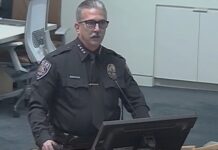

![Elena Trails releases home renderings An image of one of 56 elevation renderings submitted to Maricopa's planning department for the Elena Trails subdivison. The developer plans to construct 14 different floor plans, with four elevation styles per plan. [City of Maricopa]](https://www.inmaricopa.com/wp-content/uploads/2024/04/city-041724-elena-trails-rendering-218x150.jpg)

![Affordable apartments planned near ‘Restaurant Row’ A blue square highlights the area of the proposed affordable housing development and "Restaurant Row" sitting south of city hall and the Maricopa Police Department. Preliminary architectural drawings were not yet available. [City of Maricopa]](https://www.inmaricopa.com/wp-content/uploads/2024/04/041724-affordable-housing-project-restaurant-row-218x150.jpg)
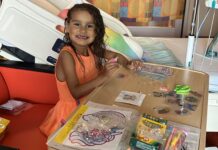
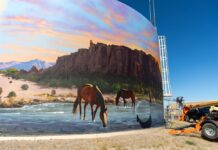
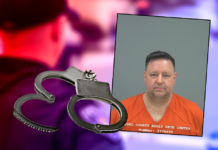



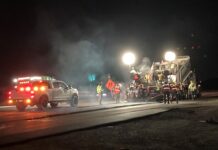



![Elena Trails releases home renderings An image of one of 56 elevation renderings submitted to Maricopa's planning department for the Elena Trails subdivison. The developer plans to construct 14 different floor plans, with four elevation styles per plan. [City of Maricopa]](https://www.inmaricopa.com/wp-content/uploads/2024/04/city-041724-elena-trails-rendering-100x70.jpg)